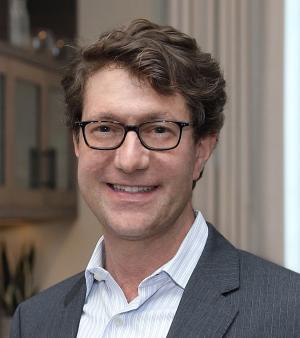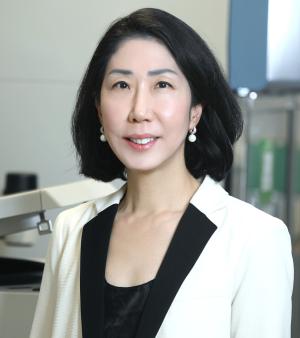Colleagues: Recently Tenured
JOHN DEKKER, M.D., PH.D., NIAID
Senior Investigator, Laboratory of Clinical Immunology and Microbiology, NIAID

Education: Wesleyan University, Middletown, Connecticut (B.A. in molecular biology and biochemistry [biophysics track] and neuroscience, M.A. in neuroscience); Harvard Medical School, Boston (M.D.); Harvard University, Cambridge, Mass. (Ph.D.)
Training: Pathology residency, Massachusetts General Hospital, Boston (2008–2012); Fellowship in medical microbiology, Massachusetts General Hospital, Boston (2012–2013)
Came to NIH: In 2013 as a medical officer and co-director of the Bacteriology, Parasitology, and Molecular Epidemiology Sections of the Microbiology Service, Department of Laboratory Medicine, NIH CC; in 2018 became a tenure-track investigator and Lasker Clinical Research Scholar, NIAID
Outside interests: Reading; eating; hiking
Website: https://www.niaid.nih.gov/research/john-p-dekker-md-phd
Research interests: Antimicrobial resistance (AMR) represents one of the most consequential problems in modern medicine, and its emergence and spread threaten to compromise central advances in the treatment of infectious diseases. Our research focuses on defining mechanisms mediating AMR in bacterial pathogens and understanding the remarkable adaptive changes these microbes undergo in response to the selective forces they encounter during host colonization and infection (PMID: 37832940). Through the study of clinical isolates, we attempt to understand the genomics, mechanisms, and physiology underlying these phenomena in the natural context of human host infection.
Recent and ongoing work in our lab includes:
1) Understanding genome methylation and potential unappreciated involvement of phage-encoded methyltransferases in modulating antimicrobial resistance in the common gut microbe Bacteroides fragilis (PMID: 37429841);
2) Characterizing how hypermutation due to selected mismatch-repair deficiencies may accelerate the evolution of AMR in acute infection in Pseudomonas aeruginosa (PMID: 31530672);
3) Understanding the function and structure of the MexVW efflux pump and defining its role in mediating resistance to important cephalosporin-beta lactamase inhibitor combination antibiotics in Pseudomonas aeruginosa (PMID: 36399436); and
4) Characterizing principles governing intrahost evolution in an emerging zoonotic pathogen, Bordetella hinzii (PMID: 34301946).
[COMPILED BY ARTHI RAMKUMAR, NIAID]
JUNG-MIN LEE, M.D., NCI
Senior Investigator, Head, Translational Oncology Section, Women’s Malignancies Branch, NCI-CCR

Education: Yonsei University, Wonju College of Medicine, Seoul, South Korea (M.D.)
Training: Research fellowship in cell biology, Thomas Jefferson University, Philadelphia; residency in internal medicine, Albert Einstein College of Medicine, New York; research fellowship in functional imaging, Memorial Sloan-Kettering Cancer Center, New York; fellowship in medical oncology, NCI
Came to NIH: In 2008 as a medical oncology fellow in NCI; in 2011 as an assistant clinical investigator; in 2016 became a Lasker Clinical Research Scholar, Women’s Malignancies Branch, NCI
Outside interests: Travel; cooking; meditation
Website: https://irp.nih.gov/pi/jung-min-lee
Research interests: My research takes both bench-to-bedside and bedside-to-bench approaches. My lab studies mechanistic interactions of key molecules in DNA damage-response pathways using ovarian cancer preclinical models and produces in vitro and in vivo data to support next-generation clinical trials for relapsed ovarian cancer patients. We also develop the preclinical models to test the hypotheses that stem from my observations in the clinic. Our clinical trials incorporate the collection of patient tissue and blood samples to understand the biology and resistance to the drugs, and to develop the new hypothesis-driven clinical trials.
Our work demonstrated augmenting replication stress by modulating ATR-CHK1 signaling, one of the key DNA damage-response pathways, inducing DNA damage and cell death in relapsed ovarian cancer patients (PMID: 37343085).
We also identified unique mechanisms of CHK1 inhibitor-resistance in ovarian cancer cell lines and patient tumor samples (PMID: 38555285), which provide novel insight for the development of next-generation clinical trials and translational studies. Ongoing work is focused on mechanical investigation of replication stress response and resistance to the drugs, and its biological relevance in ovarian cancer.
Future directions: My program is also investigating other gynecologic cancer models to investigate the new targeted agents as well as novel antibody drug conjugates.
ANDRE LAROCHELLE, M.D., PH.D., NHLBI
Senior Investigator, Laboratory of Regenerative Therapies for Inherited Blood Disorders, NHLBI

Education: University of Sherbrooke, Sherbrooke, Quebec, Canada (B.Sc. and M.Sc. in biochemistry); University of Toronto, Toronto (Ph.D. in molecular and medical genetics); McMaster University, Hamilton, Ontario, Canada (M.D.)
Training: Resident in internal medicine, Mayo Clinic, Rochester, Minnesota (1999–2002); hematology-oncology fellow, NHLBI (2002–2005); postdoctoral fellow, NHLBI (2005–2007)
Before coming to NIH: Resident in internal medicine, Mayo Clinic, Rochester
Came to NIH: In 2002 as a hematology-oncology fellow, NHLBI
Outside interests: Spirituality; artificial intelligence; fitness
Website: https://www.nhlbi.nih.gov/science/regenerative-therapies-inherited-blood-disorders
Research interests: My research program focuses on advancing regenerative medicine by targeting hematopoietic stem cells (HSCs) to develop novel therapies for inherited blood disorders. A primary focus is Fanconi anemia (FA), an inherited bone marrow failure syndrome caused by mutations in the FA-BRCA DNA repair pathway and hypersensitivity to inflammation. Our work focuses on the following three therapies:
1) Drug therapy: One of the key breakthroughs in my research is the identification of eltrombopag (EPAG) as a first targeted drug therapy for FA-associated bone marrow failure (NCT: 03206086). EPAG mimics thrombopoietin, a critical regulator of HSC survival, improving trilineage hematopoiesis by bypassing inflammatory blockades (PMID: 30803992) and activating DNA repair mechanisms (PMID: 30986494).
2) Gene therapy: We are pioneering ex vivo gene-based therapies for FA by using innovative methods based on CRISPR editing (PMID: 3309880; PMID: 33322084) and less toxic antibody-based conditioning regimens (PMID: 38464076). Additionally, we are exploring in vivo gene therapy using lipid nanoparticles for precise HSC delivery. These strategies aim to provide a one-time curative intervention for FA patients.
3) Cell therapy: For patients with depleted HSC reserves who may not respond to EPAG or are ineligible for gene therapy, we are exploring fundamental hematopoietic developmental processes to enable de novo generation of HSCs from human induced pluripotent stem cells (PMID: 31710911; PMID: 36672255; PMID: 37220178).
Future directions: Looking ahead, my research will continue to refine these therapies, focusing on enhancing in vivo gene- and cell-based interventions’ safety and efficacy. We aim to translate these discoveries into clinical applications, ultimately improving treatment outcomes for FA and other inherited blood disorders.
SONJA W. SCHOLZ, M.D., PH.D., NINDS
Senior Investigator, Neurodegenerative Diseases Research Section, Neurogenetics Branch, NINDS

Education: Medical University Innsbruck, Innsbruck, Austria (M.D.); University College London, London (Ph.D. in neurogenomics)
Training: Postdoctoral fellow in neurogenetics, NIA (2005–2009); postdoctoral fellow in neuroscience, Georgetown University, Washington, D.C. (2009–2011)
Before coming to NIH: Internship and adult neurology residency, Johns Hopkins University Medical Center, Baltimore (2011–2015)
Came to NIH: In 2015 as an assistant clinical investigator, NINDS; in 2018 became a Lasker Clinical Research Scholar, NINDS
Outside interests: Reading (science fiction and popular science); hiking with my husband; traveling; cats
Website: https://irp.nih.gov/pi/sonja-scholz
Research interests: I am a neurologist and neurogeneticist who specializes in movement and cognitive disorders. Neurogenetics has already revolutionized how we think about common neurodegenerative conditions, such as Alzheimer's disease and Parkinson's disease. In my laboratory, we extend powerful genomic techniques to other neurodegenerative diseases, such as Lewy body dementia (PMID: 33589841; PMID: 37388914), multiple system atrophy (PMID: 38701790), frontotemporal dementia (PMID: 33242422), progressive supranuclear palsy (PMID: 33341150), and corticobasal degeneration. The primary mission of my research program is to unravel molecular genetic mechanisms that cause or contribute to these devastating diseases. This knowledge highlights targets for drug development. To maximize our impact, we are building on national and international collaborations, and we leverage the unique resources within the Intramural Research Program at NIH.
Future directions: We aim to incorporate molecular knowledge into our diagnostic, prognostic, and therapeutic approaches toward age-related neurological diseases. As we expand our efforts, we will generate comprehensive genomic and multi-omic datasets in clinically deeply characterized patients. To accelerate the pace of discovery in this understudied disease space and effect collaboration with the broader neuroscience community, we share our data as foundational resources and hopefully achieve actionable progress on making precision medicines a reality for patients suffering from complex neurodegenerative syndromes.
[COMPILED BY SEPPIDEH SAMI, CC]
This page was last updated on Thursday, December 5, 2024
